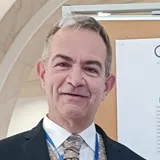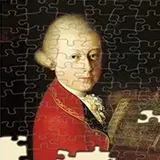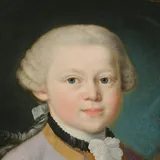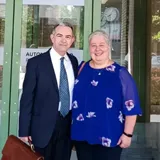The ItalianOpera Network
An independent network for research, outreach, and musical culture
ItalianOpera.it is not just a website—it’s the hub of a network of projects, authors, and initiatives devoted to music, documented research, and the defense of historical truth.
Here you’ll find the different realities working together to make culture more open, free, and (finally) well-documented.

Network Sites 

ItalianOpera.it
The main portal: outreach, research, critical and documented revision of Italian music. The heart of the network.
Visit
lucabianchini.eu
International profile of Luca Bianchini: musicology, software, forensics, Mozart research, and much more.
Visit
annatrombetta.it
Books, revisions, conferences, and musicological projects. All the work of Anna Trombetta.
Visit
mozartlacadutadeglidei.it
The site of the book and the critical project: Mozart unmasked, sources, analysis, and historical myths debunked.
Visit
mozartrazom.com
Video channel, lessons, courses, and articles in English. A bridge between Italian musicology and an international audience.
VisitOur Mission
We’re not just an aggregator of websites: ItalianOpera Network is a laboratory for research, fact-checking, and out-of-the-box dissemination.
We believe in documented music, rigorous philology, curiosity that debunks myths—and the freedom to publish what others would rather ignore.
If you’re looking for comfort or “fairy tales for grown-ups,” you’re in the wrong place.
But if you want facts, sources, and a bit of critical thinking, welcome home.
Our goal? To restore Italian music (and more) to its historical truth, with no discounts for anyone.
What Makes Us Different
- 🔎 No ties to publishing groups, foundations, universities, or publishers: total independence.
- 📝 All publications are based on primary sources and documentary verification.
- 🎭 We debunk historical fakes and myths, unafraid to ruffle a few feathers.
- 🌐 We engage with the international public directly, with no filters and no “provincial” mindset.
- 💡 We promote accessibility, transparency, and open dialogue.
Collaborations & Partners
The ItalianOpera Network was born independent, but we’re not closed off. We only work with organizations, researchers, and institutions that share our documentary ethics and critical spirit.
- 🤝 Collaborations with scientific journals, festivals, orchestras, and musicological societies throughout Europe.
- 🏆 Projects recognized and awarded by third parties (e.g., Traetta Society, JFDE Journal, universities, foundations).
- 🌍 Selected partners who value transparency and the verification of sources.
Want to propose a collaboration?
Write to us at info@italianopera.it and tell us who you are and why you think your work is in tune with ours.
Awards, Honors & Press
- 🏅 Traetta Prize for contributions to international musicological research (2024).
- 📰 Articles in JFDE Journal, academic journals, and industry websites.
- 🎤 Radio, TV, and podcast interviews: from Rai to BBC, from blogs to independent platforms.
- 📚 Books reviewed and cited by experts, historians, and other musicologists.
Get Involved, Report, Join
This network is alive because it’s open to those who can read, question, propose, ask (and even disprove, as long as you bring documents!).
Do you have research to share, a project to promote, do you want to collaborate, or simply tell us a story that others have ignored?
Write, propose, step forward. No documented report, question, or proposal will end up in a drawer.
(* All collaborations are evaluated: here it’s not about who shouts the loudest, but who brings real ideas and facts.)
Network Rules & Requirements
- 1. No legends, no dogma: All submissions must be based on verifiable sources, documents, or clear arguments—not just tradition, "everybody says so," or opinions.
- 2. No anonymous reports: You must sign your proposal with your real name and a verifiable contact.
- 3. No plagiarism, no AI fakes: Submissions must be original. We check for plagiarism and AI-generated content. If you use AI as a support, declare it openly.
- 4. Sources, always: Attach scans, photos, references, or links for every statement that is not common knowledge.
- 5. Evidence over authority: Your idea or discovery will be valued for its content, not for your status, rank, or academic title.
- 6. No personal attacks, no drama: Criticism is welcome, but must focus on ideas, sources, and methods—not on people.
- 7. Keep it readable: Write clearly and concisely. If possible, avoid jargon, or explain it.

